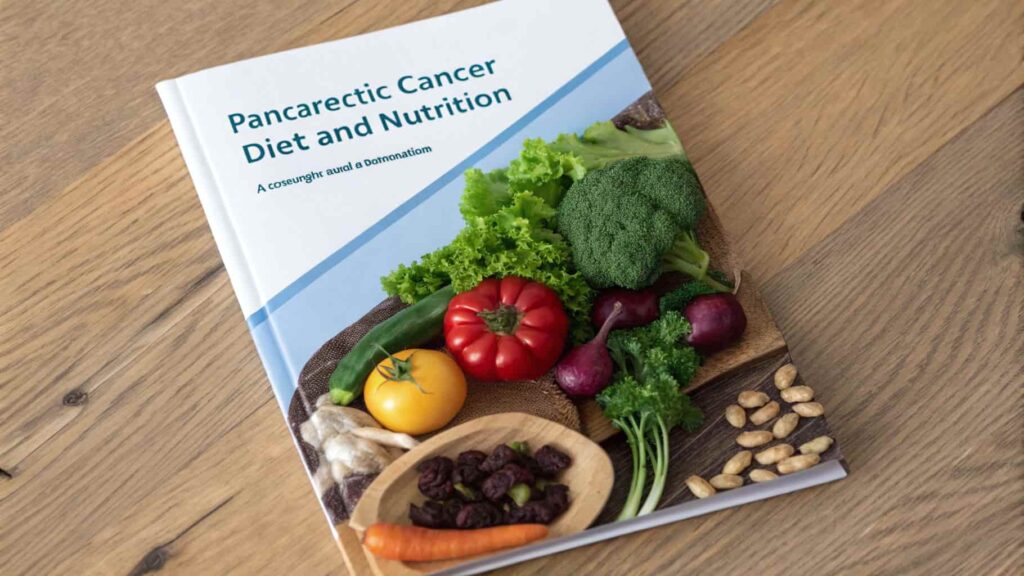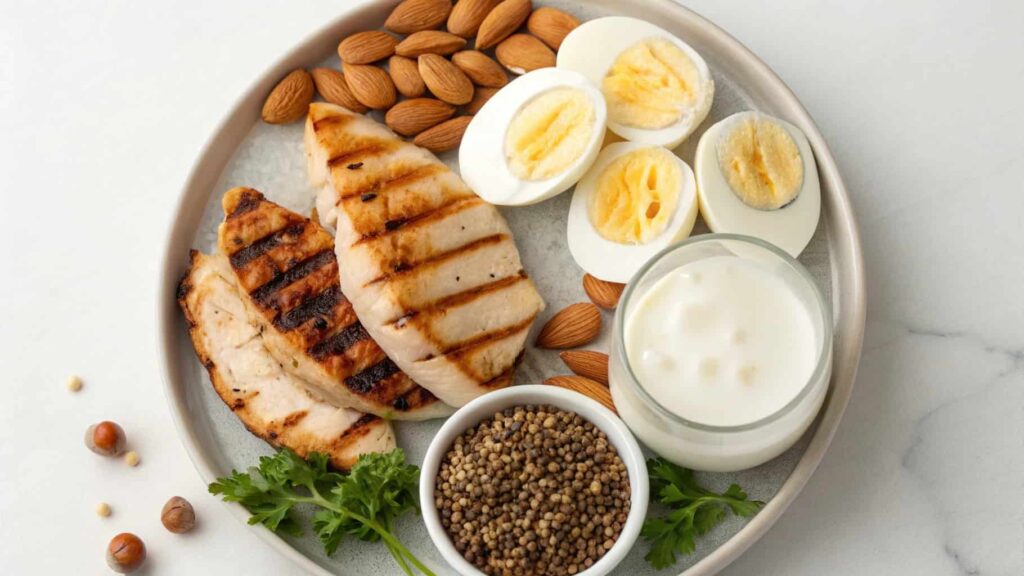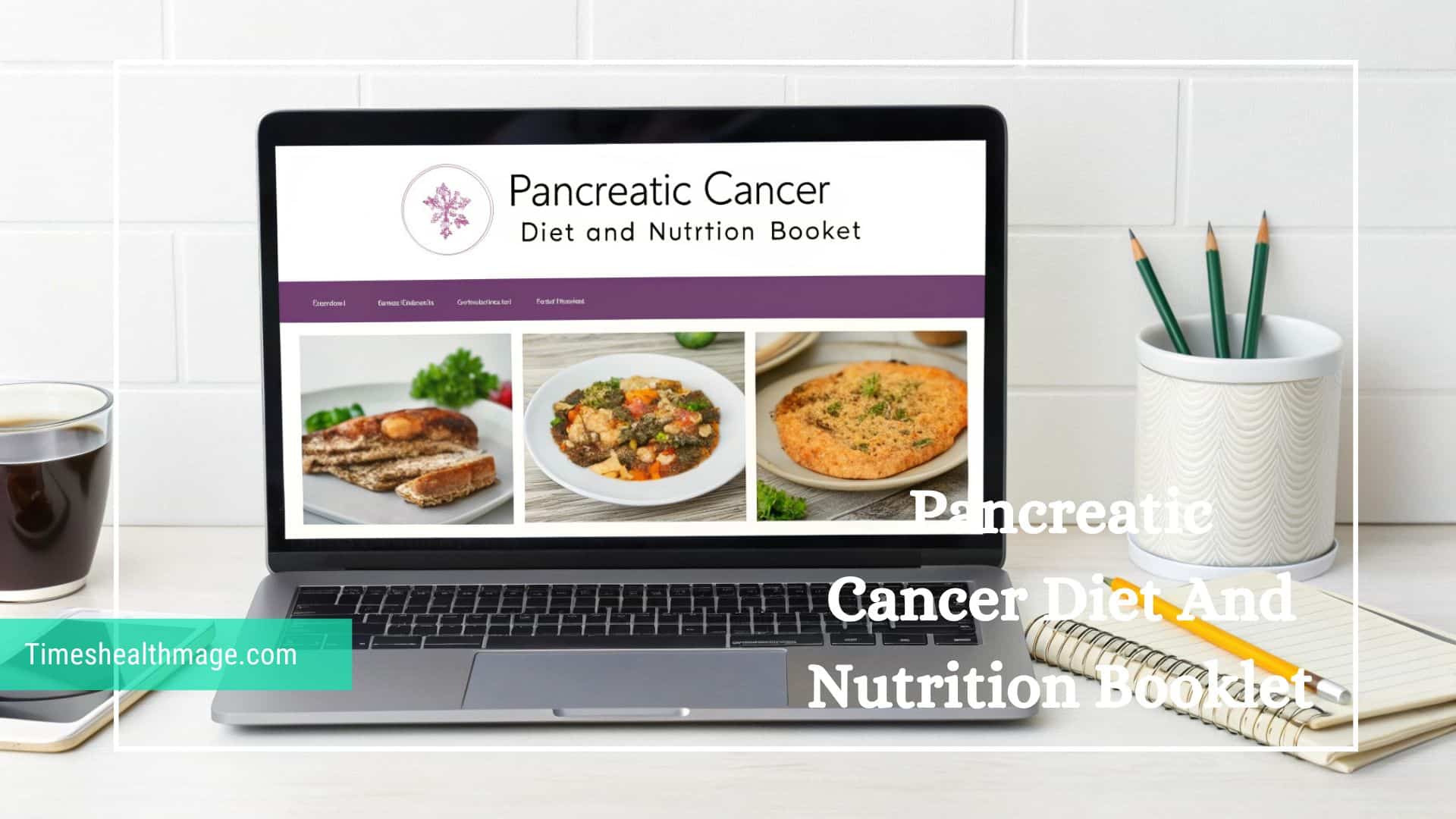Pancreatic cancer presents numerous challenges, not only due to its aggressive nature but also because of the impact it has on nutrition and eating habits. As one of the most demanding and complex cancers, managing nutrition during treatment is crucial for patients’ overall well-being. One effective way to support pancreatic cancer patients in maintaining their health and strength during treatment is through a specialized resource: the pancreatic cancer diet and nutrition booklet.
This booklet is an indispensable guide that provides valuable insights into managing the dietary challenges faced by pancreatic cancer patients. In this article, we will explore the purpose, importance, and benefits of the pancreatic cancer diet and nutrition booklet, providing detailed nutritional guidance and strategies for coping with the symptoms associated with pancreatic cancer treatments.
What Is the Pancreatic Cancer Diet and Nutrition Booklet?
The pancreatic cancer diet and nutrition booklet is a comprehensive resource created to assist pancreatic cancer patients and their caregivers in understanding the impact of the disease and its treatments on nutrition. The goal is to help patients navigate the challenges associated with appetite loss, weight loss, digestive issues, and malabsorption, all of which are common during treatment.

This resource includes information on recommended foods, meal plans, and cooking techniques to support the body during chemotherapy, radiation, and surgery. It also highlights the importance of tailored nutritional plans, and in many cases, the guidance of registered dietitians and healthcare providers.
Why Is Nutrition Crucial for Pancreatic Cancer Patients?
Nutrition plays a pivotal role in the overall management of pancreatic cancer. At every stage of the disease, maintaining a balanced diet can help minimize the side effects of treatment, preserve muscle mass, and support immune function. Pancreatic cancer and its treatments can significantly affect the body’s ability to absorb nutrients, which is why proper nutrition is essential to prevent malnutrition and support recovery.
- Managing Digestive Issues: Since pancreatic cancer can affect the digestive system, particularly with the pancreas’ ability to produce enzymes, maintaining a diet that aids digestion and supports absorption is critical.
- Boosting Immunity and Strength: Good nutrition helps boost the body’s immune system, making it more capable of fighting infections and dealing with the side effects of treatments.
- Maintaining Energy: A well-balanced diet ensures that patients maintain enough energy to withstand the fatigue commonly caused by chemotherapy and radiation.
- Improving Healing and Recovery: Nutrition supports tissue repair and the healing process, which is particularly important after surgery or during chemotherapy-induced cell regeneration.
Key Nutritional Challenges for Pancreatic Cancer Patients – Dont Miss Out!
When diagnosed with pancreatic cancer, patients often face a multitude of dietary issues due to the disease’s effect on the digestive system. These challenges include:
Appetite Loss and Weight Loss:
Pancreatic cancer can cause a significant decrease in appetite, making it difficult for patients to maintain a healthy weight. Additionally, chemotherapy and radiation treatments can cause nausea and changes in taste, which further reduce food intake.
Solution: Small, frequent meals (6-8 times a day) are recommended to help patients maintain their calorie intake. Focusing on energy-dense and high-protein foods is key.
Malabsorption and Digestive Difficulties:
The pancreas is responsible for producing enzymes that help break down food. Pancreatic cancer can disrupt this process, leading to malabsorption of key nutrients such as fats, proteins, and vitamins.
Solution: Pancreatic enzyme replacement therapy (PERT) is often recommended to help patients digest food properly. This, combined with a carefully planned diet, can help mitigate nutrient deficiencies.
Diarrhea and Other Gastrointestinal Issues:
Chemotherapy and radiation can cause diarrhea, bloating, and other gastrointestinal issues that hinder nutrient absorption and cause discomfort.
Solution: Staying hydrated and eating easily digestible, low-fat, and non-spicy foods can help manage these symptoms.
Tailored Dietary Recommendations For Pancreatic Cancer Patients – You Must Read!
The pancreatic cancer diet and nutrition booklet provides tailored dietary recommendations that focus on high-protein, high-calorie foods that are easy to digest and can help patients maintain their weight and strength during treatment.

High-Protein Foods for Tissue Repair:
A key focus of the diet is to incorporate foods that are rich in protein, which are essential for tissue repair, muscle maintenance, and immune support. Some excellent sources of protein include:
- Lean meats (chicken, turkey, fish)
- Eggs (easily digestible)
- Dairy (milk, yogurt, cheese)
- Beans and legumes (lentils, chickpeas, kidney beans)
- Nuts and seeds (almonds, chia seeds, pumpkin seeds)
Energy-Dense Foods to Maintain Weight:
Maintaining weight is often a challenge due to the loss of appetite and malabsorption. Therefore, it’s important to include energy-dense foods that provide extra calories without requiring large portions. Some foods that can help include:
- Avocados (rich in healthy fats and calories)
- Nut butters (peanut butter, almond butter)
- Olives and olive oil (high in monounsaturated fats)
- Whole grains (oats, quinoa, whole wheat pasta)
- Full-fat dairy (whole milk, full-fat yogurt)
Colorful Fruits and Vegetables:
Fruits and vegetables are crucial for providing essential vitamins, minerals, and antioxidants. For patients dealing with the side effects of cancer treatment, these nutrients are important for healing and immune function. Some great choices include:
- Leafy greens (spinach, kale)
- Berries (blueberries, strawberries)
- Carrots, sweet potatoes, and squash
- Citrus fruits (oranges, grapefruits)
Avoiding Trigger Foods:
Some foods can exacerbate symptoms or interfere with treatment. It’s important for pancreatic cancer patients to avoid:
- Processed foods that are high in additives or preservatives
- Fried and greasy foods
- Sugary snacks and desserts
- Caffeinated drinks (especially in excess)
Practical Tips for Implementing the Pancreatic Cancer Diet – Need To Know!
Adhering to a strict diet can be overwhelming, but the pancreatic cancer diet and nutrition booklet provides practical advice to make it easier. Here are some tips for patients and caregivers:
- Plan Meals Ahead of Time: Planning meals and snacks in advance can reduce stress and ensure that patients are getting the right nutrients. Having a variety of easy-to-prepare recipes on hand is a great way to manage dietary needs without feeling overwhelmed.
- Focus on Small, Frequent Meals: Instead of aiming for large meals, try consuming smaller, more frequent meals throughout the day. This can help with appetite loss and ensure a consistent intake of calories and protein.
- Incorporate Smoothies and Liquid Meals: Smoothies can be a great way to pack in calories, protein, and nutrients when solid food is difficult to consume. Adding ingredients like protein powder, Greek yogurt, and fruits can make smoothies both nutritious and satisfying.
- Keep Nutrient-Dense Snacks Handy: Having easy-to-grab, nutrient-dense snacks available throughout the day can help maintain energy and prevent weight loss. Opt for options like nuts, cheese, and protein bars that are high in calories and protein but require minimal preparation.
- Monitor Hydration Levels: Staying hydrated is crucial, but certain treatments can make drinking water more difficult. Incorporating fluids like herbal teas, soups, or electrolyte-rich drinks can help maintain hydration and support overall health.
How PERT Enhances Digestion During Cancer Treatment?
One of the most significant challenges for pancreatic cancer patients is malabsorption, as the pancreas may no longer produce enough digestive enzymes. The pancreatic cancer diet and nutrition booklet provides extensive guidance on the use of pancreatic enzyme replacement therapy (PERT) to aid digestion.
PERT involves taking enzyme supplements to help break down fats, proteins, and carbohydrates, which improves nutrient absorption. The booklet explains how and when to take these enzymes to maximize their effectiveness.
Managing Emotional And Lifestyle Support – Proven Strategies for Stress Relief and Strength!
Nutrition isn’t just about food; it also has a psychological aspect, particularly for those dealing with the emotional toll of cancer treatment. The pancreatic cancer diet and nutrition booklet addresses the emotional challenges that come with diet changes, such as food aversions or guilt over weight loss.

Additionally, it offers lifestyle suggestions to reduce stress, promote relaxation, and encourage a positive attitude toward maintaining a healthy diet. Simple practices like deep breathing exercises or mindfulness can help ease anxiety and improve your emotional well-being. Staying connected with loved ones for emotional support can also make it easier to stay motivated and focused on nutrition goals during treatment.
FAQs:
Can pancreatic cancer affect digestion?
Yes, pancreatic cancer often impacts digestion, especially since the pancreas produces enzymes needed for breaking down food. This can result in malabsorption of fats, proteins, and other essential nutrients. Using pancreatic enzyme replacement therapy (PERT) can help improve digestion.
What foods should pancreatic cancer patients avoid?
Patients should avoid fried, greasy foods, sugary snacks, and caffeinated drinks, as these can worsen symptoms or interfere with blood sugar control. Highly processed foods and alcohol should also be limited. A diet rich in whole, natural foods is generally recommended for better health outcomes.
How can I deal with taste changes caused by treatment?
Taste changes are common during treatment, but choosing foods with stronger flavors, such as lemon or ginger, can help. It’s also helpful to experiment with different textures and recipes to find options that are more palatable. The booklet offers practical advice for managing taste changes.
What should I do if I have trouble eating or drinking enough?
Try consuming smaller, more frequent meals or snacks, and make sure they’re nutrient-dense to maximize calorie intake. Liquid meals and smoothies can help if solid food feels overwhelming. If needed, consider consulting a dietitian for additional support or supplements to improve nutrition.
How can I manage my blood sugar levels while on treatment?
Managing blood sugar is crucial for pancreatic cancer patients, especially if the cancer affects insulin production. Focusing on a balanced diet with complex carbohydrates, lean proteins, and healthy fats can help regulate blood sugar. Regular monitoring of blood sugar levels and consulting with a doctor is essential.
Are there any recommended supplements for pancreatic cancer patients?
Supplements like vitamins and minerals may be necessary if patients are not getting enough from food due to malabsorption. However, it’s important to consult with a healthcare provider before taking any supplements, as they may interact with treatments or medications.
What role does hydration play in pancreatic cancer nutrition?
Staying hydrated is essential to support overall health and help manage treatment side effects. Drinking enough fluids can help prevent dehydration, which is common due to vomiting or diarrhea caused by treatment. Non-caffeinated, non-alcoholic beverages like water, herbal teas, and broths are good choices.
Conclusion:
The Pancreatic Cancer Diet and Nutrition Booklet is a crucial resource for anyone dealing with pancreatic cancer. It provides patients, caregivers, and healthcare teams with essential information on how to manage the dietary and nutritional challenges posed by the disease and its treatments. By following the dietary guidelines, patients can maintain strength, support healing, and improve their overall quality of life during and after treatment.
Proper nutrition is not just about what patients eat, but how they eat it, and the booklet provides comprehensive guidance to help individuals navigate this complex aspect of pancreatic cancer care.
Recent Posts:


Leave a Reply